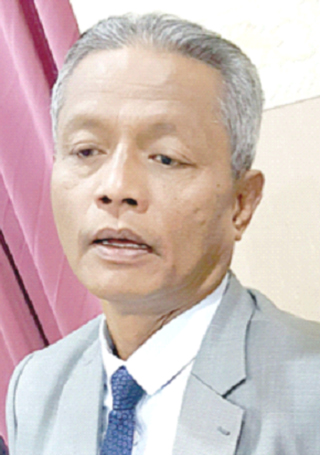Sabah unique, should talk to PM
Published on: Tuesday, January 10, 2017

Kota Kinabalu: The State Government should discuss with the Prime Minister regarding its stand in opposing the recent passing of tax law on religious bodies and organisations in Parliament. Deputy Finance Minister II Dato Othman Aziz (pic) suggested that the matter be further discussed with the national top leadership because of Sabah's unique multi-racial and multi-religious background."The Chief Minister can bring this issue to the Prime Minister to get his views. Of course, whenever we introduce something there are always pros and cons," he said after attending the State level Budget 2017 briefing at the Federal Government Administration Complex here, Monday.
ADVERTISEMENT
"In my view, Sabah is unique and therefore this issue should be further discussed with the central leadership." Othman was asked to comment on Sabah Chief Minister Datuk Seri Musa Aman's statement on Sunday regarding the State Government's stand on the issue, as well as Sarawak which shared similar sentiment. Musa had said that the State Government opposed the move to tax religious bodies and organisations even though it understood well that the objective of the tax amendment was to curb abuse of religious donations for personal gain by unscrupulous parties. He said that the State Government viewed the issue seriously because some would misconstrue the move as being against all non-Muslim religious organisations.
ADVERTISEMENT
"To avoid the unnecessary confusion and distrust, we do not agree to the move. It could be detrimental to the religious peace and harmony that has prevailed all this while in Sabah," he had said in a statement. He had also promised that under his watch, the State Government would continue to uphold religious freedom and promote harmony among the ethnically diverse communities in the State.
ADVERTISEMENT
Parliament passed an amendment to paragraph 13(1)(b) Schedule 6 Income Tax Act 1967 (Act 53) in Budget 2017, said in order to provide clarity of the law on the application of exemption to religious institutions or organisations.With the amendment, all religious institutions or organisations qualify for tax exemptions provided that their income are from donations and intended for religious activities. But income from business or rental is taxable under Act 53 and is outside the scope of the exemption.On this, Othman explained that the amendment to the tax law is one of the ways for the government to ensure that donations received by all religious bodies are only meant for religious activities and propagation of faith.He also said it is a way for the Government to impose control so as to prevent abuse by irresponsible parties who disguise their activities by claiming to be for religious purposes. "The problem is when someone abuses the name of a religious body to solicit donations. We also don't want monetary collections said to be for religious purposes but are actually to fund militant activities such as IS (Islamic State) and so on," he said. Othman added the new tax law is also meant to prevent staff of religious bodies who earn high salaries from not paying tax on the excuse that they are on the payroll of a religious institution that enjoys tax exemption.He stressed that the tax law applies to all religious bodies and institutions, including Muslims."There are Muslim religious bodies and institutions who collect here and there but they never declare. We don't even know the purpose of the collections. Some (staff) are earning big salaries but never declare," he said. To a suggestion that most non-Muslim religious bodies and institutions have to rely on investments to fund their religious activities and propagation of faith, Othman said any other source of income other than donations for such purposes are subjected to tax law."If it's business, they'll have to comply with the Companies Commission of Malaysia (regulations)," he said. Othman denied that the new tax law indicates that the Government is facing shortage of funds."It's not true. Besides, the contributions from religious bodies and organisations to the government in the form of tax is not very much," he said.Second Finance Minister Dato Johari Abdul Ghani had stated recently in his WhatsApp text message to DAP lawmaker Teresa Kok that based on the Inland Revenue Board's experience many religious bodies were actively involved in investments and some of them frequently buying and selling properties using their funds.He had also claimed that they earned huge profit and some even paid huge allowances to the committees. He further explained that there was a need to have a system to safeguard all public donations so as to ensure they are used solely for religious purposes and not for profit-making.He added that profit-making investments should be properly taxed whereas donations from the public remain tax exempted. However, particularly non-Muslim organisations contended that they did not depend on the Government but had to raise funds through investments, among others, in order to propagate their faith such as building chapels, churches and managing faith-based kindergartens and nurseries in the interior. They said that although the measure also applied to Muslim groups, it cannot be denied that the religion received huge allocations for the propagation of the faith at both Federal and State levels which it never questioned.Stay up-to-date by following Daily Express’s Telegram channel.
Daily Express Malaysia




